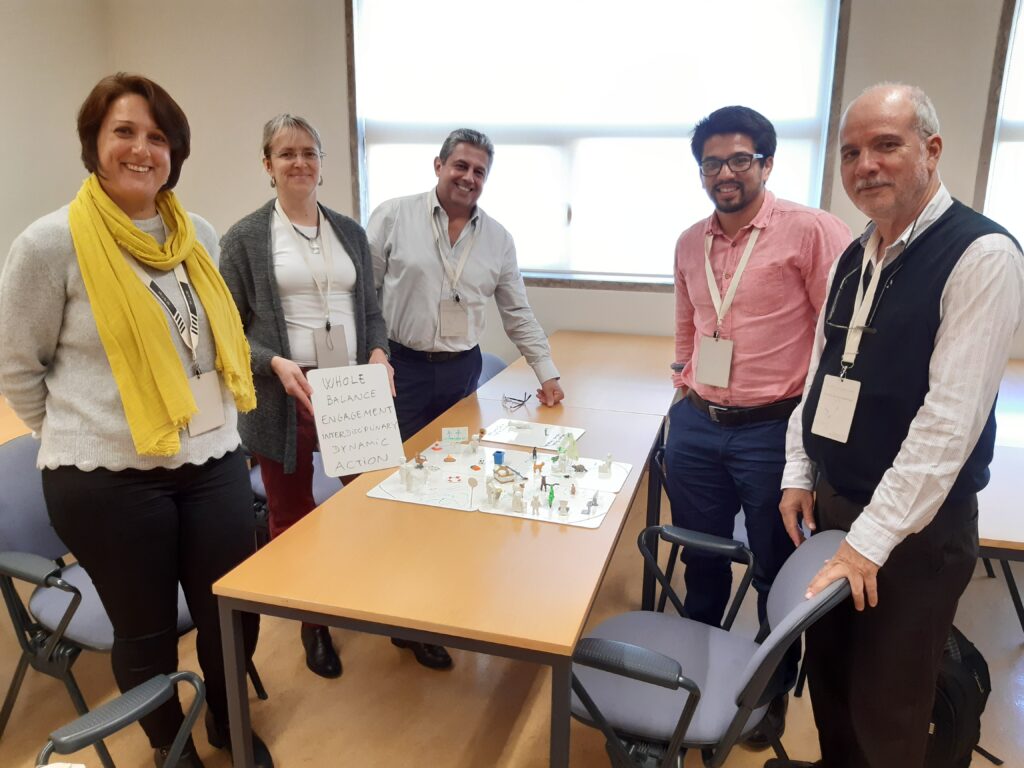Population growth and increased prosperity, ever expanding economies, rapid urbanization and
globalization are bringing global demand for energy, water and food to a point increasingly beyond the Earth’s carrying capacity. Together with climate change, those pressures are causing significant
environmental degradation in many parts of the planet. Latin America (LA) is particularly vulnerable: deforestation of rainforests, climate change-induced loss of land productivity, biodiversity loss, natural resources degradation, water shortages, effects on the fishing and tourism sectors, all have been increasing recently. These trends have direct consequences on the regional, national and local societies and economies, but also very significant effects worldwide because some of these countries are large exporters of food (meat, vegetables and fruit), energy and other material resources.
According to UNESCO and the United Nations, education has a key role for a sustainable future, challenging Universities to take a leadership role in sustainability issues. As universities educate the next generation of decision-makers and influencers, they can have a greater impact on sustainable development than any other single sector in society. However, their positive impact and contribution are marginal if sustainability-related practices are not framed by a systematic approach, which promotes continuum improvement and assures quality.
The partner institutions are deeply committed to environmental protection and sustainable development. The universities have put in place initiatives, programs and management tools to deal with quality improvement and sustainability practices both in campus operations and education. There are however common needs related to systematic and integrating procedures delivering a holistic approachto sustainable development in academic activities.


To install sustainability-related holistic quality assurance processes and mechanisms through environmental management systems in alignment with the UN SDGs in the partner universities

To improve education for sustainability in each partner university through the development of customized educational strategies and innovative educational resources aligned with the UN SDGs

To reduce the environmental impact of the partner institutions in selected relevant areas through improving management and operations

To establish a European and Latin-American network for sustainable campi and education, fostering future progress and continuous improvement of the management systems and educational resources and further extending the project results to other higher education institutions.
One of the needs that the project addresses is directly related to teaching and learning: develop, implement and monitor long-term customized strategies to consolidate and innovate curricula with sustainability-related contents and resources at a general overarching level but also in each scientific area at program level.

Students are the most significant part of an academic community. Therefore, environmental
management and sustainability education will only be successful if students share the vision and the goals to be pursuit.

The project’s direct impacts will overall include a very large academic community. However, future sustainability of this EU investment depends on scaling-up the outputs and good practices to other local and national universities across the LA region. This goal depends not only on enlarging the HEI network within the region, but also on policies and incentives from the regulatory bodies.

Effective implementation of environmental management and its integration with quality assurance and education depends on a well-established set of actions and procedures that will be carried out at all levels of the university activities

Integrated management systems at all levels of academic activity requires, first of all, top management buy-in, which is assured by the willingness of each partner to participate in the project. Besides the top level, development and implementation will depend on the management staff whose institutional roles are to support top management in defining institutional vision and mission, global strategies and action plans.


Lorem ipsum dolor sit amet, consectetuer adipiscing elit, seddiam nonummy nibh euismod tincidunt ut laoreet doloremagna aliquam erat volutpat. Ut wisi enim ad minim veniam,quis nostrud exerci tation ullamcorper suscipit lobortis nisl utaliquip ex ea commodo consequat. Duis autem vel eumiriure dolor in hendrerit in vulputate velit esse molestieconsequat, vel illum dolore eu feugiat nulla facilisis at veroeros et accumsan et iusto odio dignissim qui blandit praesentluptatum zzril delenit augue duis.
Lorem ipsum dolor sit amet, consectetuer adipiscing elit, seddiam nonummy nibh euismod tincidunt ut laoreet doloremagna aliquam erat volutpat. Ut wisi enim ad minim veniam,quis nostrud exerci tation ullamcorper suscipit lobortis nisl utaliquip ex ea commodo consequat. Duis autem vel eumiriure dolor in hendrerit in vulputate velit esse molestieconsequat, vel illum dolore eu feugiat nulla facilisis at veroeros et accumsan et iusto odio dignissim qui blandit praesentluptatum zzril delenit augue duis.